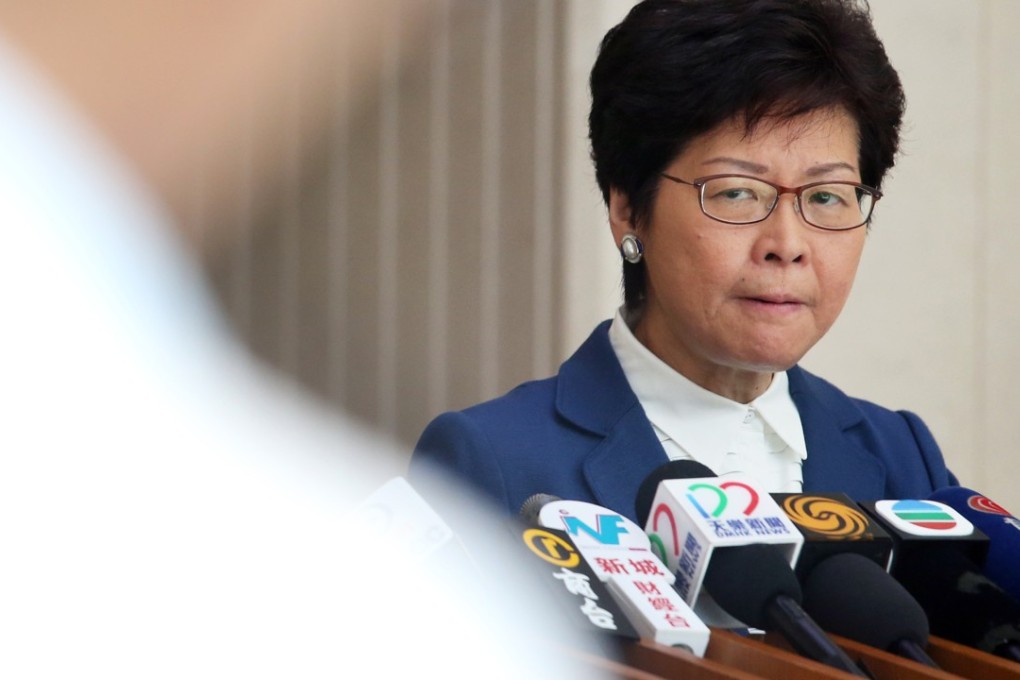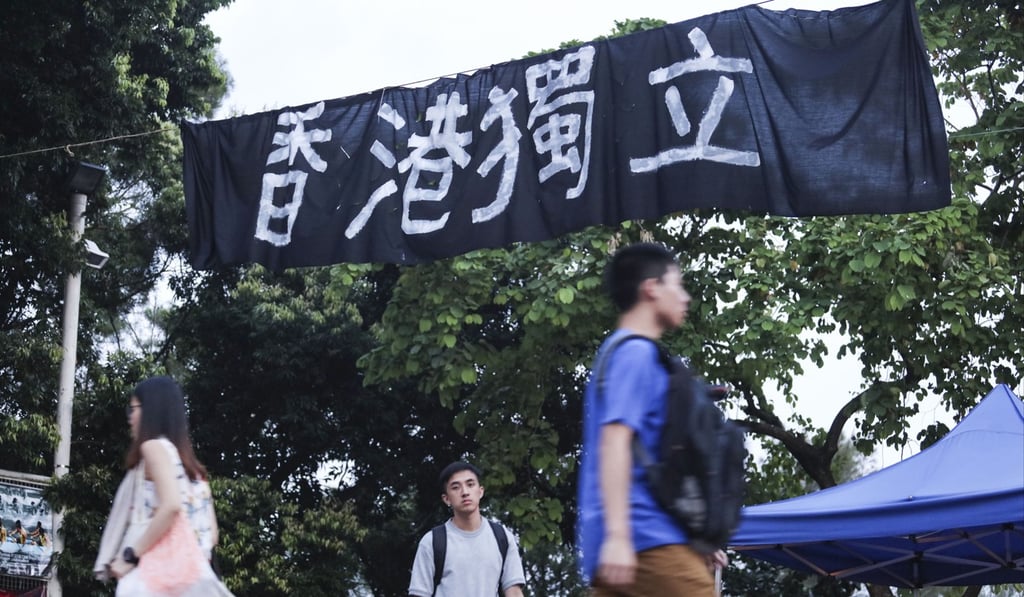Carrie Lam’s popularity dips to lowest level since she became leader of Hong Kong – but it’s still higher than her predecessor
Slump in support comes amid heightened tensions in the city after university students call for Hong Kong to break away from Chinese rule

Public confidence in Hong Kong leader Carrie Lam Cheng Yuet-ngor has dipped by as much as 8 percentage points to reach its lowest level since she took office on July 1.
Both Lam’s popularity rating and the level of public confidence in her were at a record low since the start of her term almost three months ago, according to the latest edition of the University of Hong Kong’s public opinion programme, done from September 12 to 15.
Lam’s public confidence or approval rate – the difference between a vote of confidence or no confidence in an individual – plunged 8 percentage points to 7 per cent compared with two weeks ago, with an approval rate of about 47 per cent and a disapproval rate of about 41 per cent.
This was the first time Lam’s approval rate had reached a single digit in three months. She enjoyed a 19 per cent of approval rate when she took office in early July.

Lam’s popularity also dropped by 2.6 marks, to 56.4 out of 100 in two weeks. The highest mark reached was 63.7 in early July.